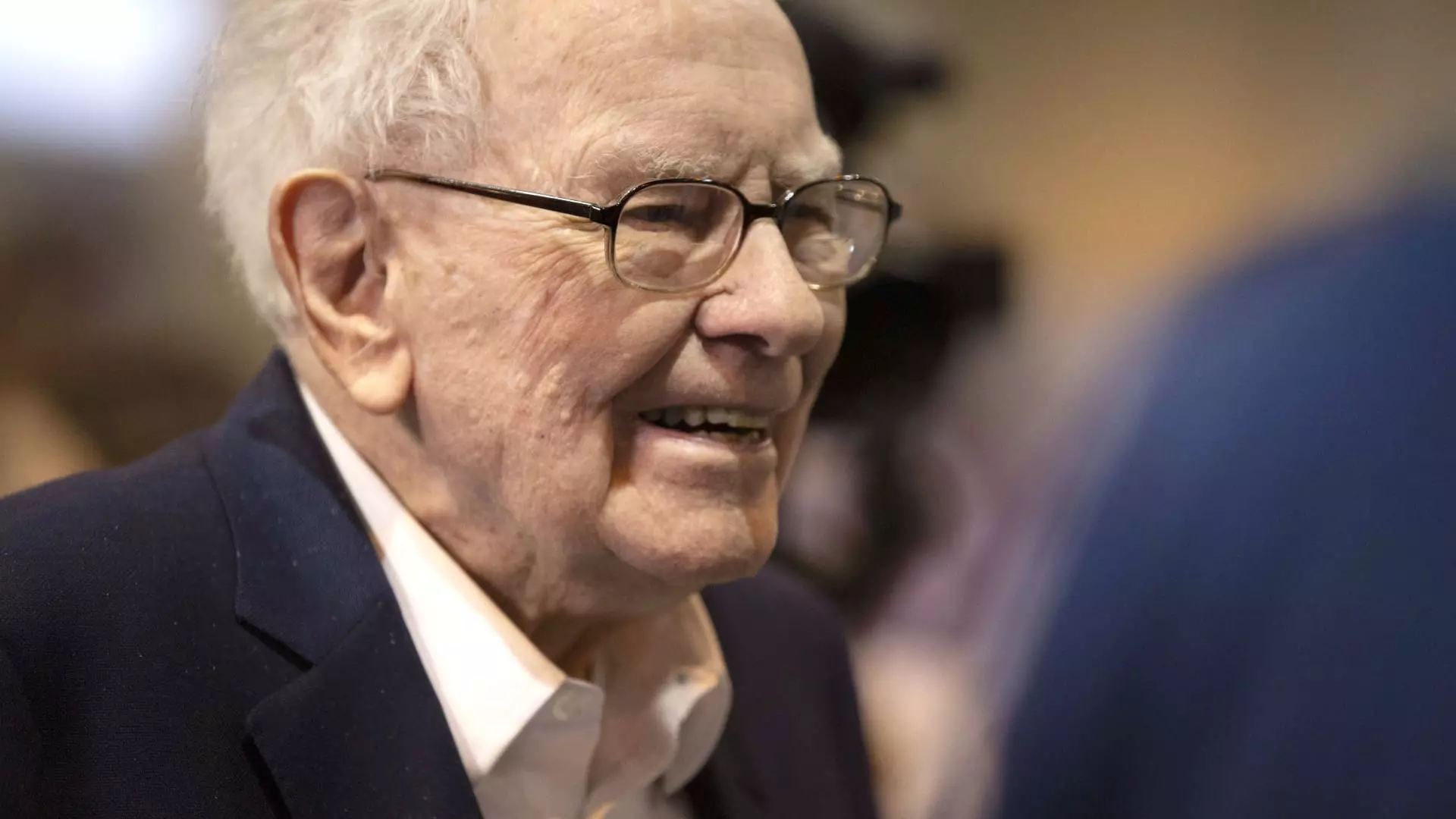Warren Buffett, the legendary investor and CEO of Berkshire Hathaway, has long been celebrated for his keen instincts in the stock market. As of 2024, however, his strategy seems to have veered into more cautious terrain. The conundrum lies in Buffett’s decision to amplify Berkshire’s cash reserves to a staggering $334 billion, even as he simultaneously divests from equities. This puzzling behavior has raised eyebrows among analysts and shareholders alike, leading to scrutiny of Buffett’s intentions amid a thriving stock market. What is the rationale behind this defensive posture?
In his annual letter, Buffett took time to clarify his stance on the cash position at Berkshire. Though the company holds an extraordinary amount of cash, he remains steadfast in his love for equities, asserting that the majority of shareholder money is still allocated to stocks. “That preference won’t change,” he claimed. This statement can be viewed as both reassuring and perplexing. On one hand, it indicates a commitment to long-term equity investments, while on the other, the substantial cash reserves beg the question: why the shift in allocation?
Buffett’s keen observation of the stock market suggests an air of frustration with current valuations. His decision to sell off significant amounts of Berkshire’s equity holdings—over $134 billion in 2024 alone—leaves analysts speculating about whether this is a prudent strategy or a harbinger of market volatility. Buffett’s perspective implies a recognition of inflated share prices, yet he remains unwilling to make significant new investments, causing some to question the confidence in his own portfolio.
While Buffett seemed straightforward in his messaging, the broader market context adds further layers of complexity. With the S&P 500 soaring over 20% for two consecutive years and continuing upward momentum, Berkshire’s hands-off approach has left investors restless. They draw a sharp contrast between Buffett’s historical boldness in equity investments and this newfound reluctance. Observers cannot help but question whether this indicates a shift in investment philosophy or simply a temporary strategic retreat.
In recent communications, Buffett acknowledged a burgeoning concern regarding the state of the economy, hinting at unease over stock valuations. “Often, nothing looks compelling,” he wrote, underlining his cautious outlook. The implications here suggest that while Buffett advocates for equities, he is increasingly wary of the investment landscape—prompting a reallocation of resources to maintain flexibility.
A Look Ahead: The Future of Berkshire Hathaway
Buffett’s endorsement of his designated successor, Greg Abel, adds yet another layer to this evolving narrative. While Buffett has established a legacy of successful investment choices, his decision to empower Abel with final say over investment decisions signals a transition for Berkshire. Some analysts posit that Buffett’s recent conservatism may not merely be a personal choice, but rather a preparatory move for Abel to navigate the next phase of Berkshire’s evolution.
Moreover, Buffett has indicated an intention to bolster investments in Japanese trading companies, suggesting that while he remains cautious about the American market, promising opportunities may still exist abroad. This duality in strategy reflects a broader adaptability, signaling to investors that Berkshire is prepared to pivot based on changing economic landscapes.
Investors, accustomed to Buffett’s proactive investment style, are understandably impatient amid Berkshire’s stock sell-offs and the halt in share buybacks. Buffett’s own financial acumen is being tested as he sits on a sizable cash pile while the market thrives. The paradox is evident: while the cash accumulating in Berkshire’s coffers offers a safety net, it contrasts sharply against the hunger for aggressive growth in equity investments, especially given the current bullish market conditions.
This standoff between robust cash reserves and the lack of swift, decisive investment action creates an environment ripe for speculation. Are Buffett’s moves merely a calculated pause, based on analytical rigor, or do they reveal deeper uncertainties about the market’s trajectory?
As Berkshire Hathaway navigates the complexities of modern investment climates, investors are left with more questions than answers. Buffett’s blend of cautious cash accumulation and continued faith in equities presents a multifaceted picture. While Berkshire’s cash position is indeed unprecedented, it invites discussion on the efficacy of caution in a thriving market.
Ultimately, time will unveil the results of this strategic pause. For now, the enigmatic stance of Warren Buffett remains a focal point of investment discourse, challenging traditional notions of stock market engagement and propelling discussions about the future of one of the most revered financial minds of our time.


Leave a Reply